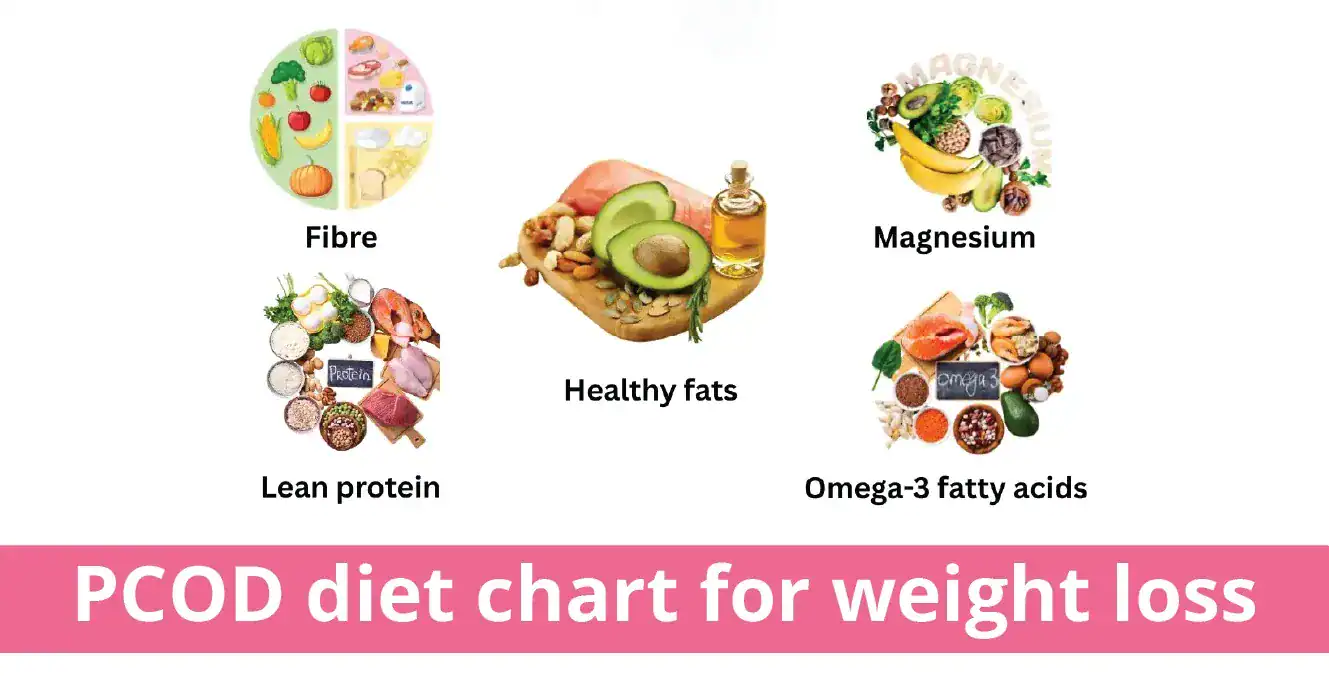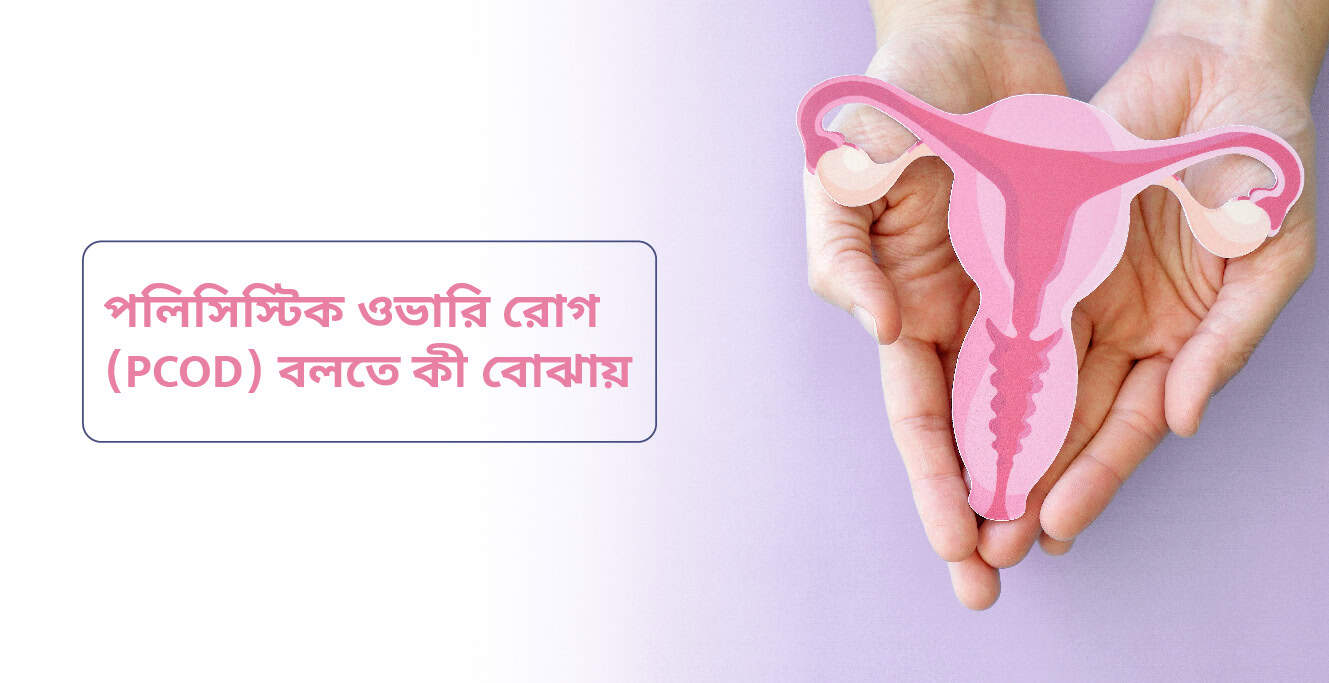
PCOD Problems After Marriage: Types, Symptoms, Causes & Treatment

Table of Contents
Polycystic Ovarian Disease (PCOD) is a common hormonal disorder that affects many women of reproductive age, especially in India. While PCOD can occur at any time, for some women, the symptoms of PCOD may become more noticeable or even appear for the first time after marriage. If you’re navigating PCOD as a newlywed, know that you’re not alone. With the right information and support, you can manage your symptoms and improve your overall health and well-being.
Symptoms of PCOD and Why It May Worsen after Marriage
Many women with PCOD experience a range of symptoms throughout different stages of life. These may include:
- Irregular or missed periods
- Difficulty getting pregnant
- Hormonal imbalances
- Weight gain or difficulty losing weight
- Acne or oily skin
- Excess facial and body hair growth
- Thinning hair on the scalp
- Mood changes, such as anxiety or depression
These symptoms may either become more pronounced or appear for the first time after marriage.
Reasons for PCOD Problems After Marriage:
There are several possible reasons for PCOD Problems:
Hormonal changes
Marriage is often associated with significant life changes, including lifestyle adjustments. This can cause hormonal fluctuations, contributing to the development or worsening of PCOD.
Increased Stress
The transition to married life can bring new stressors such as financial responsibilities, adjusting to a new living situation, and family dynamics. This can result in the release of cortisol, which can disrupt hormone balance and trigger PCOD symptoms.
Lifestyle changes
After marriage, there may be changes in diet and physical activity levels owing to increased family responsibilities. Furthermore, increased sedentary behaviour can lead to weight gain and insulin resistance, which can exacerbate PCOD symptoms.
Social pressure
The pressure to conceive soon after marriage can be emotionally taxing and may worsen PCOD symptoms.
If you’re experiencing any of these symptoms, it’s important to talk to your doctor. They can help you determine if PCOD is the underlying cause and develop a treatment plan that’s right for you.
Tests for Diagnosing PCOD after Marriage
If your doctor suspects that you have PCOD, they may recommend the following tests:
|
Test |
Purpose |
|---|---|
|
Blood Tests |
Check androgen, hormone, triglyceride, and total cholesterol levels and glucose tolerance |
|
Ultrasound Examination |
Identify abnormalities or cysts in the ovaries and uterus |
|
Pelvic Test |
Check the reproductive organs and surrounding areas for cysts, masses, or abnormal growth |
|
Mental Health Screening |
Rule out signs of anxiety and depression, which are often associated with hormonal imbalances in PCOD |
Receiving a PCOD diagnosis can be overwhelming, but it’s the first step in finding the right treatment plan for you.
How to Cure PCOD after Marriage?
While there’s no definite cure for PCOD, there are several strategies that can help manage symptoms and improve overall health:
-
Transparent communication: Open communication about PCOD with your husband can promote empathy and emotional support. Stress and mental difficulties might be better managed with a solid support network.
-
Dietary modifications: Many studies have revealed a correlation between diet and PCOD management. Particularly, a low-calorie diet rich in low glycaemic index and non-starchy fruits and vegetables and low-fat dairy can help manage PCOD symptoms. Furthermore, eliminating or avoiding fatty and sugary foods may help manage insulin resistance, which is commonly associated with PCOD.
-
Regular exercise: Guidelines suggest that regular physical activity, particularly a minimum of 120-150 min of vigorous intensity per week, can help reduce weight, enhance insulin sensitivity, and improve overall health.
-
Stress management: Preliminary evidence suggests that practicing stress-reduction techniques such as meditation, yoga, or deep breathing exercises can help manage stress and improve the quality of life of women with PCOS.
-
Consult a PCOD specialist: Arrange an appointment with a PCOD-focused gynaecologist or endocrinologist. They can offer a precise diagnosis, propose the right tests, and offer a personalised treatment strategy.
-
Medications: Medications such as metformin and anti-androgen medicines can help manage insulin resistance and lower androgen levels, respectively.
-
Contraception and family planning: To control your menstrual cycle and treat symptoms, talk with your doctor about your contraception alternatives if you don’t immediately intend to get pregnant.
-
Medical assistance: For those experiencing fertility challenges, Assisted Reproductive Technologies (ART), such as In Vitro Fertilisation (IVF), may be a viable option. To choose the best course of therapy, it is crucial to consult with a fertility expert or PCOD expert.
-
Regular monitoring: Keep a record of your symptoms, menstrual cycles, and any alterations. When discussing treatment options and during doctor visits, this information will be helpful.
-
Schedule routine follow-up: Continue seeing your doctor on a frequent basis so they can check on your progress and alter your treatment plan as necessary.
-
Stay informed: Continue to learn about PCOD from reliable sources. You can take control of your health and make educated decisions if you have a good understanding of your situation.
Remember, every woman’s experience with PCOD is unique. Work closely with fertility experts to find the best management approach for you.
PCOD and Fertility: Can I get pregnant with PCOD?
A very common question among women with PCOD is, ‘I have PCOD; can I get pregnant?’ While PCOD can make it more challenging to get pregnant, it is not impossible. With proper management and treatment, many women with PCOD can successfully conceive and have healthy pregnancies.
PCOD-Friendly Diet Tips
Making dietary changes is an important part of managing PCOD. Here are some tips to get you started:
- Choose complex carbohydrates such as whole grains, legumes, and non-starchy vegetables over simple carbs like white bread and sugary snacks.
- Incorporate lean proteins such as fish, chicken, and tofu into your meals.
- Eat plenty of fibre-rich foods, such as fruits and vegetables (e.g., berries, citrus fruits, carrots, and peppers), to improve digestion and maintain a healthy weight.
- Limit your intake of processed foods, refined sugars, and unhealthy fats.
- Consider working with a registered dietitian who specialises in PCOD to develop a personalised meal plan.
The table summarises the major food groups and corresponding serving sizes for Indian women with PCOD:
|
Food Group |
Serving Size (grams) |
|---|---|
|
Complex Carbohydrates |
1 serving = 1 slice of whole grain bread (75 g), 1 roti (100 g) |
|
Lean Proteins |
1 serving = 85 g cooked chicken, fish, tofu, or lean meat; 1/2 cup cooked legumes (~120 g) |
|
Healthy Fats |
1 serving = 1 tablespoon ghee or oil (50 g), 1 ounce nuts or seeds (~28 g) |
|
Fruits |
1 serving = 1 medium fruit (75 g) |
|
Vegetables |
1 serving = 1 cup leafy greens (100 g) |
|
Dairy (if tolerated) |
1 serving = 1 cup milk (150 g), 1 oz. paneer or cheese (~28 g) |
Coping with the Emotional Impact of PCOD
PCOD can take a toll on your emotional well-being, especially when it interferes with your plans to start a family. It’s essential to prioritise your mental health and seek support when needed:
- Talk openly with your partner about your feelings and concerns.
- Consider joining a PCOD support group or online community to connect with others who understand what you’re going through.
- Practice stress-reduction techniques such as meditation, deep breathing, or yoga.
- Don’t hesitate to seek professional help from a therapist or counsellor if you’re struggling with anxiety, depression, or other emotional challenges.
With the right support and self-care, you can navigate the challenges of PCOD and thrive in your life after marriage.
The Bottom Line
PCOD can present unique challenges after marriage, but with the right knowledge and support, you can manage your symptoms and improve your overall health. By making lifestyle changes, working closely with your doctor, and prioritising your emotional well-being, you can navigate this journey with confidence and resilience.
A Word from the Expert
PCOD is a common condition, but it doesn’t have to define your married life. By working with your doctor to develop a personalized management plan that addresses your diet, exercise, and stress levels, you can effectively manage your symptoms and achieve your health goals, including pregnancy if that’s part of your plan. ~ Lipsa Mishra
Our Fertility Specialists
Related Blogs
To know more
Birla Fertility & IVF aims at transforming the future of fertility globally, through outstanding clinical outcomes, research, innovation and compassionate care.
Had an IVF Failure?
Talk to our fertility experts

 Our Centers
Our Centers
















